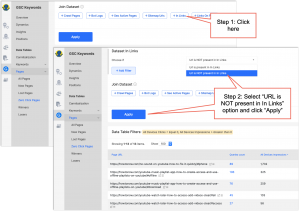
Working as an independent contractor has become a popular alternative to the traditional 9 to 5 job.
Prior to the recent wave of cloud-based technology, it wasn’t much of a viable option. But now people located all around the globe can collaborate using online tools like web-conferencing, mobile apps, and document sharing — just as if they were working together in the same office.
Independent contracting gives people with specialized skills the opportunity to work remotely, often during the hours that suit them best. It allows people to work on multiple projects for different companies at the same time — and be selective in what work they take on.
Independent contractors often say they enjoy more flexibility than they did working a regular job.
What is an independent contractor?
In general, an independent contractor is hired by a business to work on a temporary project. When their work is complete, so is their stint with the business, unless of course they agree to take on a new project.
It’s important to note that both businesses and the government view contractors differently than regular employees. Contractors own their business, which means they’re responsible for providing their own benefits — and income tax will not be withheld from their pay.
If you’re considering working as an independent contractor, you’ll definitely need to set money aside for taxes and you should probably do the same for health insurance and retirement.
The benefits of being an independent contractor
Taxes and benefits aside, independent contracting offers many advantages. Here are a few benefits:
- You’re the boss — Independent contractors are self-employed. They get to choose who they work with, how often, and what their rate is.
- Work-life balance — Most contractors work remotely. This means they’re free of commuting, unnecessary meetings, and workplace politics that commonly cause work-related stress.
- More money — Some contractors earn more than they did in a full-time role, since they’re able to shop their skills around to different companies.
How to make it work
Being an independent contractor clearly has plenty of appeal. But there is a lot of uncertainty, too. A consistent paycheck isn’t guaranteed, so maintaining a consistent flow of work is a must. If you’re considering giving it a try, here are a few tips that can set you up for success:
- Plan what you’ll earn — You should already have some idea what your skills are worth, but a site like Upwork (formerly oDesk/Elance) can give you a more specific idea about the freelance market.
- Get your business set up — Determine your legal structure, register with your state, and consider getting business insurance.
- Look for work everywhere — Scour all the freelance websites, use social media, and hand out business cards to everyone you know. You never know where a big job could come from.
- Use cloud technology to help you — Once you’re taking on projects, cloud tools like online document storage, accounting software, and a project management system can make your life easier.
Working as an independent contractor could be your ticket to a better work-life balance and even higher income. Check out Xero’s small business guide to learn more.
(255)
Report Post







